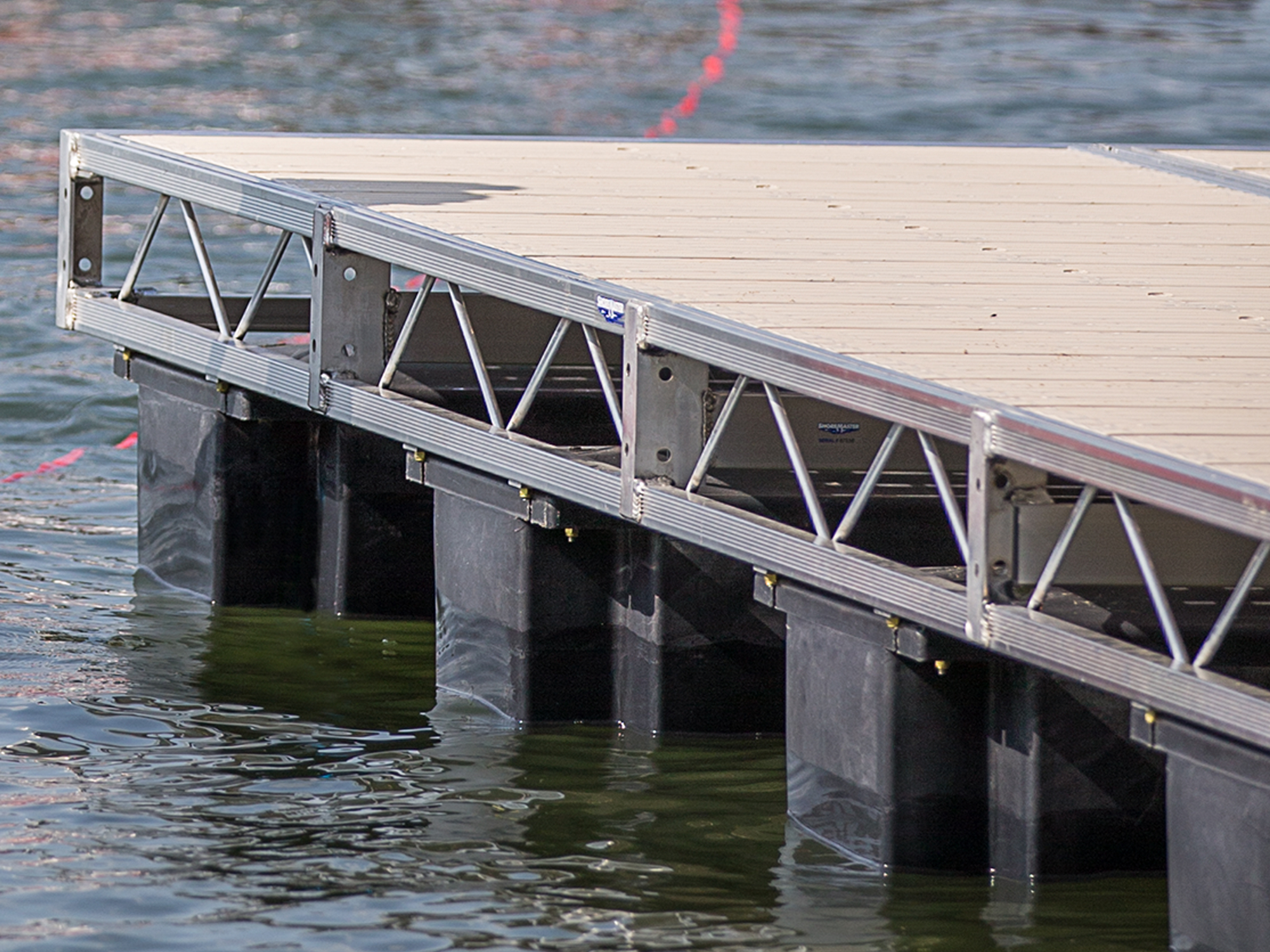Floating Docks: The Smart Choice for Modern Waterside Living and Leisure
Floating Docks: The Smart Choice for Modern Waterside Living and Leisure
Blog Article
Floating Docks: The Ideal Selection for Versatile Water Gain Access To
Floating docks existing an engaging option for a selection of water gain access to requires, using convenience that transcends typical mooring choices. The modular nature of floating docks facilitates modification, providing to specific requirements.
Benefits of Floating Docks
Floating docks deal numerous benefits that enhance water accessibility for different applications. Their capability to rise and drop with changing water levels makes them specifically beneficial in environments with changing tides or seasonal variations. This flexibility makes sure that vessels can easily moor without problem for the water's deepness, giving a trustworthy platform for entertainment, industrial, and commercial uses.
Additionally, floating docks are commonly built from long lasting products that stand up to rust, making them ideal for lasting use in aquatic settings. Their installation is generally much less invasive than typical fixed docks, lowering the environmental effect and helping with quicker deployment (floating dock services). This flexibility permits simpler relocation or reconfiguration according to individual needs or environmental adjustments
Security is one more essential benefit; floating docks can provide secure access for people disembarking or boarding from boats and minimize the danger of mishaps linked with unsteady surface areas. They can be created to accommodate a selection of accessories, such as fenders and cleats, enhancing functionality. On the whole, floating docks stand for an efficient option for boosting water gain access to across varied sectors while advertising safety and security and environmental sustainability.

Sorts Of Floating Docks
Various types of floating docks satisfy various requirements and environments, each made with particular attributes to enhance capability. One of the most typical types include modular docks, which contain interlocking sections that permit simple personalization and expansion. These docks are suitable for entertainment use, as they can be customized to fit different boat dimensions and water conditions.
Another preferred choice is the stationary floating dock, which stays anchored in position however floats with altering water levels. floating dock company. This type is especially fit for locations with very little tidal fluctuations, supplying steady accessibility for fishing or swimming. In addition, there are drive-on docks, which include a sloped design that enables boats to easily drive on and off, making them ideal for individual boat and smaller sized vessels
For commercial applications, durable floating docks are offered, created from reinforced materials to hold up against substantial lots and rough marine atmospheres. Green floating docks make use of sustainable products and styles to lessen ecological influence, typically incorporating features like greenery to support regional wild animals. Comprehending the numerous kinds of floating docks guarantees that individuals can select one of the most ideal remedy for their particular demands.
Installment Refine Overview
An effective installation of floating docks requires mindful preparation and focus to information to ensure ideal performance and safety. The first step entails evaluating the site problems, including water deepness, existing, and prospective barriers. This evaluation notifies the option of the ideal dock materials and style customized to the particular setting.
Next, acquiring essential authorizations is essential, as many territories have policies pertaining to construction on water bodies. The setup can continue when permissions are secured. Begin by preparing the foundation, which might involve anchoring systems or pilings tailored to the dock type and regional conditions.
Complying with the foundation setup, assemble the dock areas according to manufacturer requirements. Make sure that all components are securely secured and lined up to withstand ecological tensions. Placement the dock in the marked location, ensuring it is degree and steady.

Maintenance Tips and Ideal Practices
After the setup procedure is full, ongoing upkeep plays a vital role in guaranteeing the long life and performance of floating docks. Regular evaluations ought to be carried out to recognize any kind of indicators of damage, wear, or damage - floating dock company. Look for any kind of loose fittings, cracks, click for source or separation in the dock areas, as these can compromise architectural stability
Cleansing the dock is vital to eliminate debris, algae, and other accumulation that can impact its look and safety. Make use of a gentle pressure wash occasionally to keep sanitation without creating damages to the surface area. Additionally, applying a safety sealer every couple of years can help improve long life and resist environmental wear.
Take note of the mooring lines and supports, ensuring they are free and protected from rust. Change any abject parts quickly to avoid hazards. Seasonal modifications might likewise be essential; during extreme weather condition conditions, reinforcing the dock or repositioning can avoid damages.
Applications for Floating Docks
Floating docks serve a multitude of applications, providing to both business and entertainment demands. In entertainment setups, they provide smooth accessibility to rivers for tasks such as boating, angling, and swimming. Their adjustable nature permits for installment in varying water levels, ensuring stable and risk-free gain access to no matter tidal changes.
Readily, floating docks are indispensable for marinas and waterfront companies. They promote the docking of vessels, allowing effective dumping and loading of products. Their modular style permits very easy growth or reconfiguration to suit changing service needs, making them suitable for watercraft leasings, scenic tour procedures, or fishing charters.
In addition, floating docks are used in ecological applications such as aquatic study and environment restoration. They can act as platforms for clinical studies, keeping an eye on water high quality, or performing wildlife surveys without troubling delicate environments.
In commercial contexts, floating docks are utilized in building jobs, providing accessibility to hard-to-reach locations for tools and employees. Their versatility, resilience, and very little influence on the atmosphere make them an optimal choice for a variety of applications, boosting both performance and accessibility in numerous water-based atmospheres.
Final Thought
Finally, floating docks represent an optimal option for diverse water access requires, owing to their flexibility, resilience, and modular layout. These frameworks promote risk-free mooring for various applications while decreasing environmental influence throughout setup. The decreased upkeep demands even more enhance their functionality. Therefore, floating docks function as a useful asset for leisure, commercial, and environmental jobs, making sure trusted access to waterways and site web advertising sustainable methods in marine atmospheres.
Floating docks existing a compelling solution for a variety of water access requires, providing versatility that goes beyond typical mooring choices.Floating docks deal numerous benefits that improve water access for numerous applications. Overall, floating docks represent an effective service more information for boosting water gain access to throughout diverse fields while promoting safety and security and environmental sustainability.
An additional popular option is the stationary floating dock, which continues to be anchored in location however floats with changing water levels.In final thought, floating docks represent an optimum option for varied water access requires, owing to their versatility, sturdiness, and modular design.
Report this page